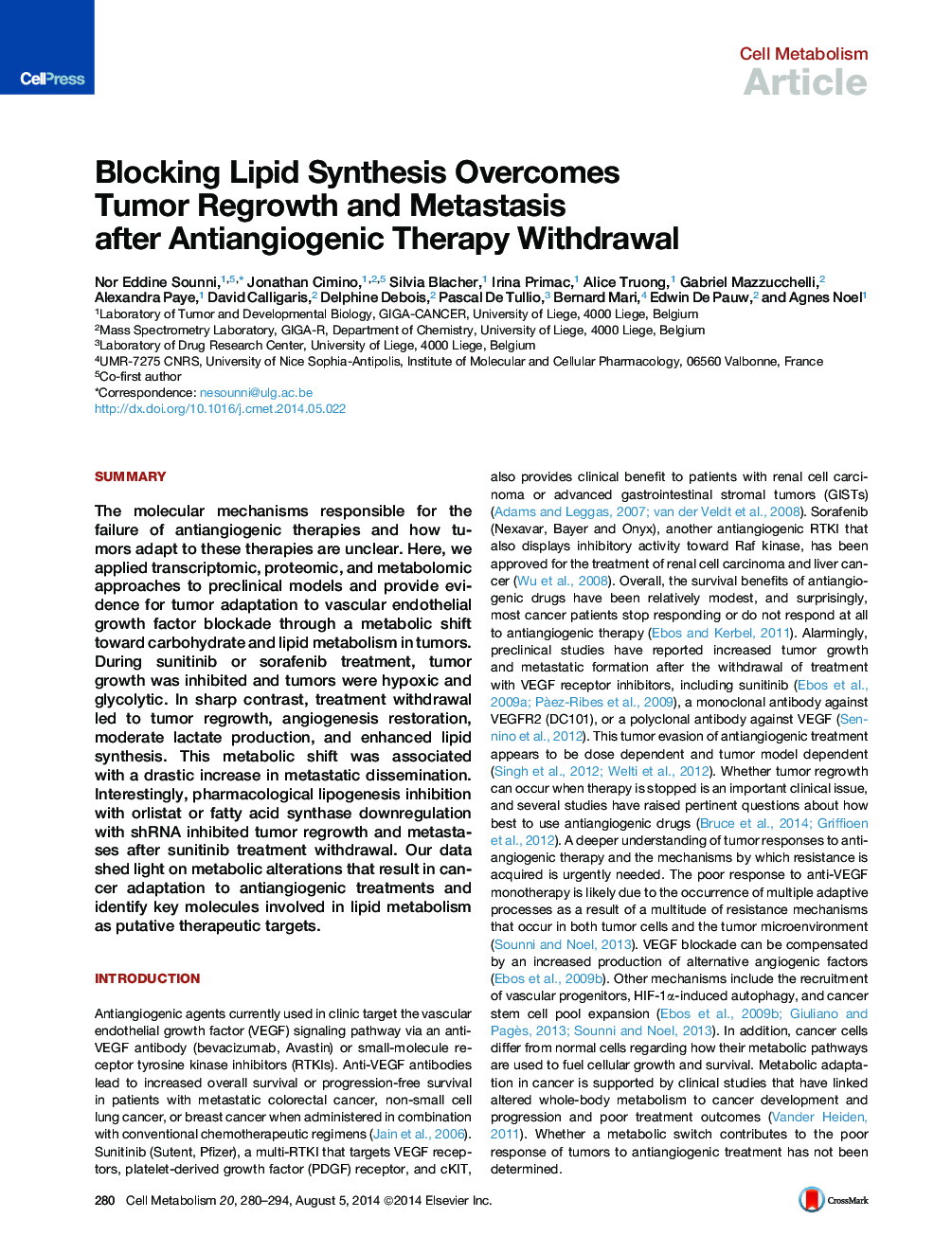| Article ID | Journal | Published Year | Pages | File Type |
|---|---|---|---|---|
| 2792605 | Cell Metabolism | 2014 | 15 Pages |
•Antiangiogenic therapy withdrawal promotes tumor aggressiveness•Tumors shift their metabolism toward lipid synthesis after treatment withdrawal•Blocking lipid synthesis restores the beneficial effect of antiangiogenic drugs
SummaryThe molecular mechanisms responsible for the failure of antiangiogenic therapies and how tumors adapt to these therapies are unclear. Here, we applied transcriptomic, proteomic, and metabolomic approaches to preclinical models and provide evidence for tumor adaptation to vascular endothelial growth factor blockade through a metabolic shift toward carbohydrate and lipid metabolism in tumors. During sunitinib or sorafenib treatment, tumor growth was inhibited and tumors were hypoxic and glycolytic. In sharp contrast, treatment withdrawal led to tumor regrowth, angiogenesis restoration, moderate lactate production, and enhanced lipid synthesis. This metabolic shift was associated with a drastic increase in metastatic dissemination. Interestingly, pharmacological lipogenesis inhibition with orlistat or fatty acid synthase downregulation with shRNA inhibited tumor regrowth and metastases after sunitinib treatment withdrawal. Our data shed light on metabolic alterations that result in cancer adaptation to antiangiogenic treatments and identify key molecules involved in lipid metabolism as putative therapeutic targets.
Graphical AbstractFigure optionsDownload full-size imageDownload high-quality image (230 K)Download as PowerPoint slide
